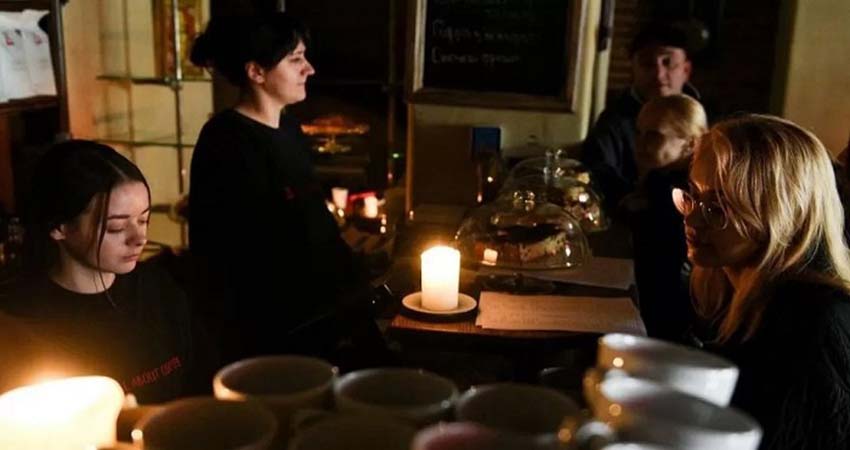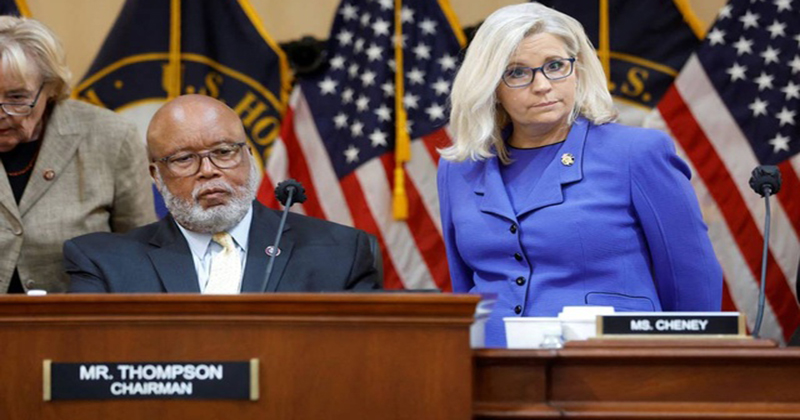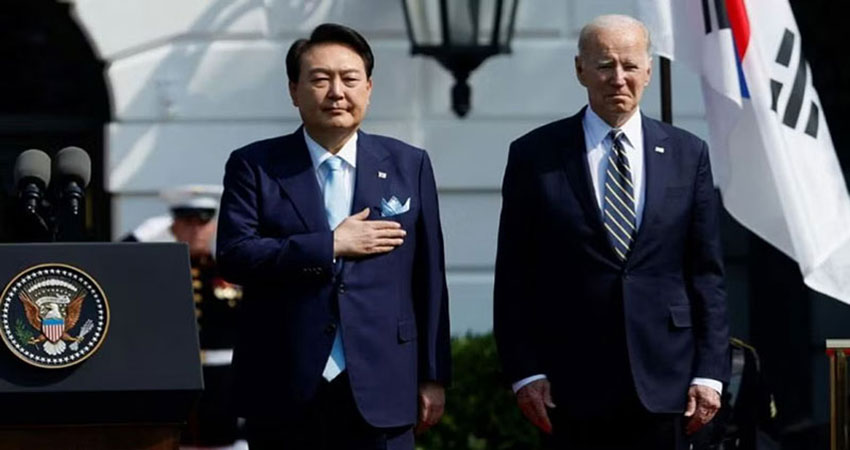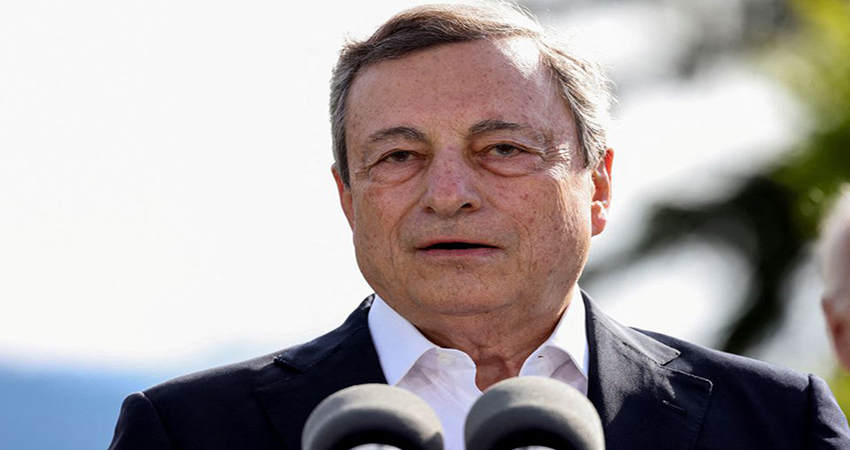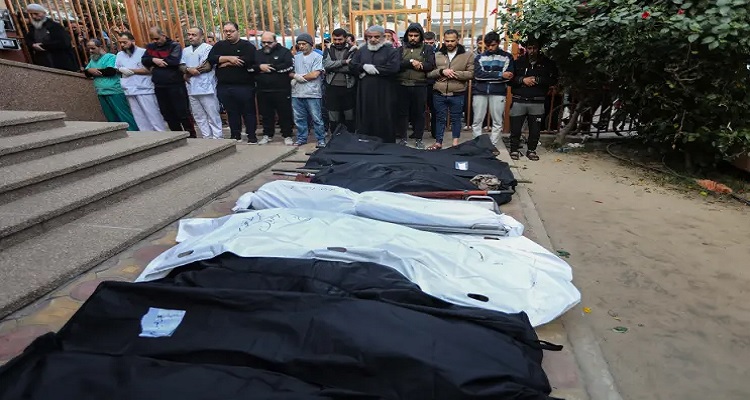Ukraine has urged residents to drastically restrict their electricity consumption starting Thursday to cope with the destruction of power stations by the Russian army as winter approaches.
Ukrainian President Volodymyr Zelensky said after a meeting with energy companies that they were preparing "for all possible scenarios with a view to winter", as Kyiv accused Moscow of orchestrating a "mass deportation" of civilians from the occupied region of Kherson.
Russian President Vladimir Putin imposed martial law on Wednesday in four areas recently annexed by the Kremlin, with his forces raining down munitions across Ukraine, including on Kyiv and the country's west, which had previously been spared the brunt of the onslaught, reports AFP.
In an evening address, Zelensky warned that "Russian terror will be directed at energy facilities", and urged the country to conserve electricity starting at 7 am (0400 GMT) on Thursday.
He added that the government was "working on the creation of mobile power supply points for critical infrastructure in cities and villages".
Kyiv mayor Vitaliy Klitschko asked residents of the capital not to turn on major electrical appliances, saying "even a small saving and reduction of electricity consumption in each residence will help to stabilise the national energy system's operation".
Ukraine said it had downed "several Russian rockets" over Kyiv in the third consecutive day of attacks on the capital, with Zelensky saying 10 Iranian-made drones aimed at the city had also been destroyed Wednesday.
- Creating 'panic' -
A Ukrainian representative called the push by Russia to evacuate Kherson the "equivalent of deportation". The city has been in Moscow's hands since the earliest days of the invasion.
Putin's "aim is to create a kind of panic in Kherson and an image (to fuel) propaganda", Sergiy Khlan said, adding that Ukrainian forces were still pushing their counter-offensive southward.
He said the Russians were using the evacuations as a pretext to justify "their withdrawal from Kherson and more generally from the right bank" of the Dnieper River.
Oleksiy Danilov, secretary of Ukraine's National Security and Defense Council, criticised Moscow's move as criminal.
"Putin's martial law in the annexed regions of Ukraine is preparation for the mass deportation of the Ukrainian population to depressed areas of Russia in order to change the ethnic composition of the occupied territory," Danilov said.
Pro-Russian officials in the town of Oleshky across the Dnieper said residents from Kherson city were already arriving.
Russia's Rossiya 24 TV showed images of people waiting to board ferries, unable to use bridges damaged by Ukraine.
Vladimir Saldo, the Kherson region's Moscow-installed head, told Russian state television that the city's administration would relocate east of the Dnieper.
- Sakharov Prize -
With developments on the ground gathering pace, Putin's introduction of military rule in the Moscow-controlled territories also gives additional power to authorities in southern Russian regions bordering Ukraine to quash dissent.
"We are working on solving very complex large-scale tasks to ensure security and protect the future of Russia," Putin said.
Local officials said they were planning to move up to 60,000 civilians from Kherson over roughly six days.
Separately, the secretary of Russia's National Security Council Nikolay Patrushev said around five million people from Russian-held parts of Ukraine had "found shelter" in Russia.
Ukraine's resilience has won plaudits internationally and the European Parliament on Wednesday awarded the annual Sakharov Prize for human rights to "brave" Ukrainians.
Zelensky tweeted in response: "Ukrainians prove dedication to the values of freedom, democracy every day on the battlefield."
Meanwhile, in parts of Ukraine recently recaptured from Russian forces, repairs were under way before the onset of winter, with many residents still depending on humanitarian aid.
"Apart from this, nothing is working," said Ivan Zakharchenko, a 70-year-old resident of Izyum queueing for aid in the square where Zelensky celebrated the town's liberation just over a month ago.
- Nuclear plant staff detained -
Ukraine has recaptured occupied eastern territory in recent weeks. Its advance in the south, while far slower, has been gaining momentum.
There have been some advances on the Russian side too, with Moscow reporting Tuesday its troops had retaken territory in eastern Kharkiv region.
Russia's Wagner mercenary group said it was working on building a "multi-level and layered defence" in the Lugansk region.
Russian forces, meanwhile, continue to occupy the Zaporizhzhia nuclear power plant.
Petro Kotin, head of Ukraine's nuclear energy agency Energoatom, told AFP Wednesday that Russian forces were currently holding about 50 plant employees.
- EU to sanction Iran -
Russia's strikes following Ukrainian battlefield gains have demolished large parts of Ukraine's power grid ahead of winter.
The government has warned of the risk of blackouts, saying about 30 percent of Ukraine's power stations have been destroyed.
After strikes Monday and Tuesday, multiple explosions were heard in central Kyiv on Wednesday.
Kyiv and Western allies have accused Moscow of using Iranian-made drones, with Ukraine saying it has successfully shot down 233 of them since mid-September.
The Kremlin and Iran have denied this, but EU foreign policy spokeswoman Nabila Massrali said the EU had "sufficient evidence" and would prepare fresh sanctions on Iran.
Ukraine restricts electricity use after Russian strikes
